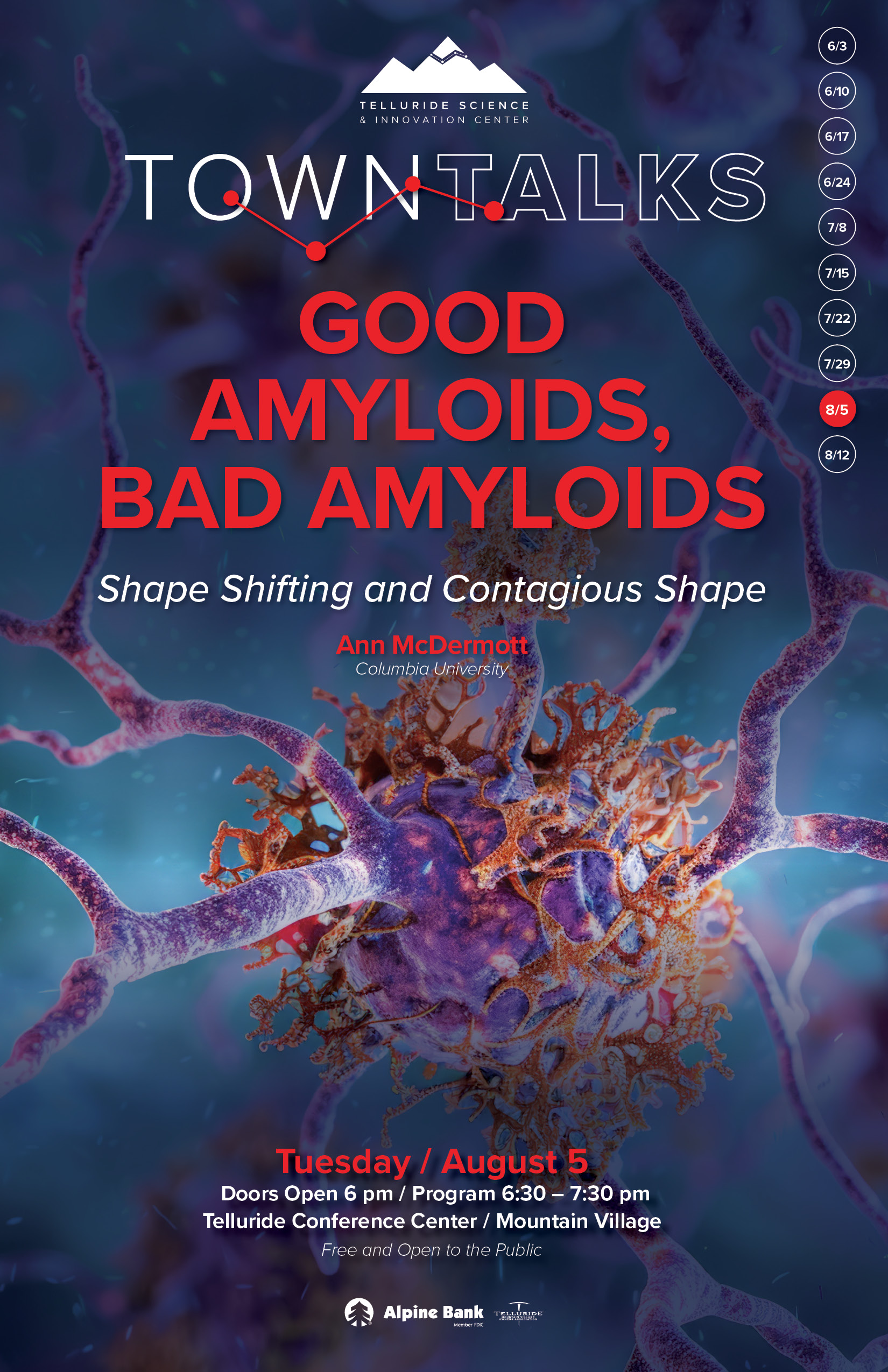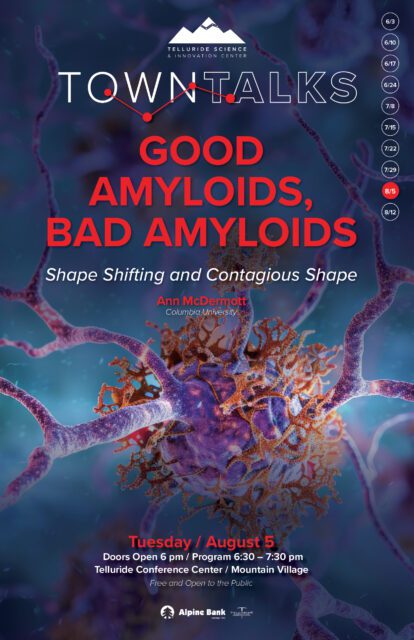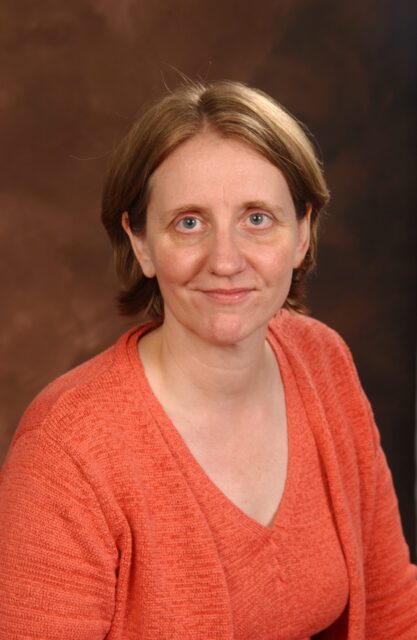
31 Jul Telluride Science Town Talk: “Good Amyloids, Bad Amyloids+,” 8/5!
This coming week the 2025 Telluride Science Town Talks series continues with “Good amyloids, Bad Amyloids: Shape Shifting and Contagious Shapes,”The event features Dr.Ann McDermott and takes place Tuesday, August 5. Doors 6 p.m.; talk, 6:30 p.m
Town Talks are FREE and open to the public.
Visit telluridescience.org to learn more about Telluride Science and the capital campaign to transform the historic Telluride Depot into the Telluride Science & Innovation Center. The venue is the permanent home for Telluride Science and a global hub of inspired knowledge exchange and development where great minds get to solve great challenges.
The 2025 Telluride Science Town Talks series is presented by Alpine Bank with additional support from the Telluride Mountain Village Owner’s Association.
Go here for more about Telluride Science.
Go here for more on Town Talks.

“Form follows function” is an iconic phrase attributed to architect Louis Sullivan. Translation: the design of something, whether it’s a building, a product, or even a biological structure, should be primarily determined by its purpose or intended use.
Proteins, “the building blocks of life,” are good examples of this tenet. Most proteins are somewhat flexible, and their numerous shapes can be adopted over the course of their cellular function. Tunnel, basket, or even the cellular equivalent of a two-by-four, the form of these complex molecules has practical and very important applications.
That’s the plus side.
However protein flexibility has a dark side too. The shape-shifting can be extreme, causing proteins to adopt dramatically different elongated forms, ones in which the many copies clump together to create amyloid deposits in places such as our brain, pancreas, kidney, heart, liver, or other major organs. Maladies such as ALS, Alzheimer’s, Type 2 Diabetes, even Mad Cow Disease are a direct result.
But there is light at the end of that tunnel.
Dr.Ann McDermott and her team at Columbia University are studying ways these clumped up molecules can be forces for good, allies instead of enemies. Yes, a controversial subject.
On August 5, McDermott is speaking at Telluride Science’s upcoming Town Talk. Her subject – “Good Amyloids, Bad Amyloids: Shape Shifting and Contagious Shape.“ During the evening, she will address questions such as does nature, the ultimate opportunist, make good use of the fact that proteins convert from their normal shape to these quasi-universal clumped forms?
According to McDermott’s ongoing research, malfunctioning amyloid proteins can actually play an important role in immune defense mechanisms. When certain proteins called RIPK-3’s detect any foreign material within a cell, they clump up, creating a hole in the side of the cell. That hole alerts the immune system to the danger, which goes after the offending cells, reducing the risk of a siege by a foreign virus in our system.
Though McDermott & Co.’s research is in the early stages, understanding the way that RIPK-3 decides to kill off foreign or otherwise compromised cells could and should ultimately make a huge difference in designing drugs that treat some of the very same diseases caused by malfunctioning proteins.
Talk about lemonade from lemons…
Dr. Ann McDermott, more:

Dr. Ann McDermott is the Esther and Ronald Breslow Professor of Biological Chemistry at Columbia University, where she leads the McDermott Lab.
McDermott earned her BSc in Chemistry from Harvey Mudd College in 1981 and completed her PhD in Chemistry at the University of California, Berkeley in 1988. Following her doctoral studies, she pursued postdoctoral research at the Massachusetts Institute of Technology.
Dr. McDermott’s research leverages advanced nuclear magnetic resonance (NMR) techniques to reveal the structure, function, and conformational dynamics of proteins in their native environments.


Sorry, the comment form is closed at this time.